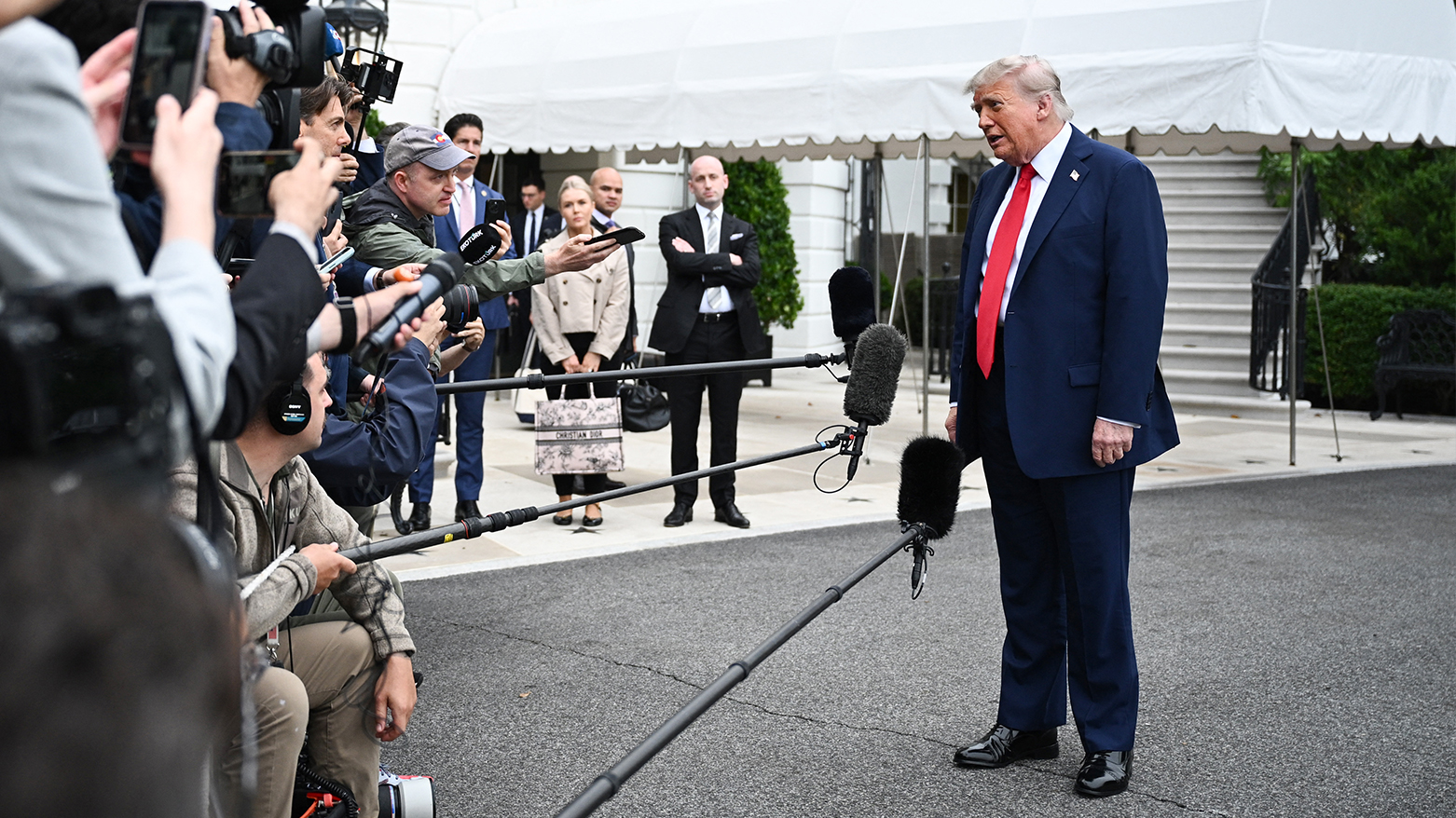In a dramatic statement made early Sunday morning, U.S. President Donald Trump issued a stark warning to Iran, vowing that any form of attack on the United States would trigger a devastating military response. His comments, delivered via a post on Truth Social, came just hours after Israel launched a massive series of airstrikes targeting Iran's defense and nuclear infrastructure.
Despite Trump’s insistence that the United States was not involved in the Israeli offensive, Iranian officials claim they possess concrete evidence implicating American support, further raising tensions across the Middle East.
“The U.S. had nothing to do with the attack on Iran, tonight,” Trump wrote. “If we are attacked in any way, shape or form by Iran, the full strength and might of the U.S. Armed Forces will come down on you at levels never seen before.” He followed this with a seemingly contradictory olive branch, adding, “However, we can easily get a deal done between Iran and Israel, and end this bloody conflict!!!”
The President’s statement was issued amid a rapidly deteriorating security situation across the region. According to the Israel Defense Forces (IDF), a wide-scale aerial bombardment was conducted against targets they alleged were tied to Iran’s clandestine nuclear weapons program.

“The IDF completed an extensive series of strikes on targets in Tehran related to the Iranian regime’s nuclear weapons project,” the military announced on X (formerly Twitter). “The targets included the Iranian Ministry of Defense headquarters, the headquarters of the SPND nuclear project, and additional targets… where the Iranian regime hid its nuclear archive.”
Tehran responded almost immediately with a barrage of missiles, striking multiple Israeli targets. At least ten Israeli civilians were killed and over 180 injured, according to emergency services in Tel Aviv. Iranian media, meanwhile, did not provide an immediate casualty report but confirmed that several buildings within the Defense Ministry compound in Tehran had been hit by Israeli warplanes.
Footage released by state-run channels showed chaotic scenes near government compounds, with flames, debris, and emergency crews scouring through the rubble.
Iran’s Foreign Minister Abbas Araghchi accused Washington of complicity in the attacks. “We have solid proof of the support of the American forces and American bases in the region for the attacks of the Zionist regime military forces,” he told diplomats in a televised briefing.
Araghchi claimed that radar signatures and electronic signals pointed to coordination between Israeli aircraft and U.S. military infrastructure stationed in Bahrain and the UAE, both longtime American allies. While these claims could not be independently verified, they immediately drew scrutiny from regional observers and further complicated the already fragile geopolitical dynamics.

U.S. officials have not responded directly to Araghchi’s allegations, but the Pentagon issued a short statement reiterating America’s “neutral stance” on the Israeli military operation. However, this attempt at distancing the U.S. from Israel’s campaign has not satisfied Tehran, nor has it appeased the growing chorus of critics in the region who see Washington’s long-standing defense ties with Israel as inseparable from any aggressive Israeli military action.
Adding to the confusion is the International Atomic Energy Agency (IAEA), which has stated in multiple recent reports that Iran was not actively pursuing a nuclear weapon as of their latest inspections. U.S. intelligence has echoed similar conclusions, albeit with caveats regarding Iran’s enrichment levels and secrecy surrounding its ballistic missile program.
This disconnect between public intelligence assessments and Israeli justifications for their strike has fueled debate in Washington about the real motives behind the offensive—and whether the United States should now recalibrate its position.
Trump’s promise to unleash the full force of the U.S. military “at levels never seen before” if Iran retaliates against America directly has unsettled some lawmakers on Capitol Hill. Several Democratic senators immediately criticized the tone of the President’s comments, warning that such rhetoric could provoke rather than deter aggression.

“This isn’t strength—it’s a reckless invitation to war,” said Senator Chris Murphy, who sits on the Senate Foreign Relations Committee. On the other hand, many Republican lawmakers, including Trump loyalists, praised the president’s posture as “decisive,” calling it necessary in the face of Iranian hostility and deception.
Meanwhile, the broader implications of the conflict are beginning to come into sharper focus. With the death toll rising and cities like Tehran and Tel Aviv bracing for more attacks, hopes for a diplomatic resolution are dwindling. Scheduled talks between Iranian and U.S. envoys to resume stalled nuclear negotiations were canceled on Saturday, and European officials report that backchannel discussions in Vienna and Geneva have gone silent.
Perhaps more ominously, Iran’s paramilitary Revolutionary Guard has threatened a broader regional response. In a fiery statement published on IRGC-affiliated media, the group claimed that Iranian missiles had hit fuel storage depots used by Israeli fighter jets and warned that “American assets in the Persian Gulf will not be spared” if further escalation occurs.
While Israel has not confirmed any damage to its airbases, satellite imagery analyzed by private intelligence firms appears to show blast damage at Negev Air Base and other installations, suggesting Iranian claims may not be entirely exaggerated.

Inside Israel, Prime Minister Benjamin Netanyahu has stood firm. In an address to the nation Sunday evening, he declared that “any regime that seeks our destruction will be met with the full power of the IDF.” Netanyahu also doubled down on Israel’s intelligence about Iran’s nuclear program, arguing that the recent strikes were “preventative measures” to stop an imminent threat. “We cannot wait until the threat becomes irreversible,” he stated.
Trump’s messaging, though clear in its threat, remains ambiguous in its strategic intent. By stating that the U.S. was not involved while simultaneously threatening Iran with military action, Trump has placed America in a paradoxical position: distancing itself from the offensive while laying the groundwork for deeper involvement should Iran retaliate.
The international community has begun urging restraint, with the United Nations Security Council calling for an emergency meeting. China and Russia both issued joint statements condemning “all forms of unilateral military action without UN authorization,” while Britain and France emphasized the need to prevent regional conflict from spiraling into global war.
Back in Washington, the White House is reportedly reviewing diplomatic contingency plans while quietly activating readiness protocols at key regional military bases. Analysts believe Trump’s administration is now navigating a dangerous tightrope—eager to avoid direct conflict, yet unwilling to appear weak before Tehran or its proxies.
This confrontation has all the ingredients of a rapidly expanding war: misinformation, revenge attacks, international blame games, stalled diplomacy, and nuclear fears. And as of now, there’s no clear path toward de-escalation. One thing, however, is certain—Trump’s declaration that he will unleash “the full strength and might” of the U.S. military if provoked is not just a warning to Iran, but a clear signal that the world may be entering an even more dangerous phase in an already volatile region.

-1749890798-q80.webp)

